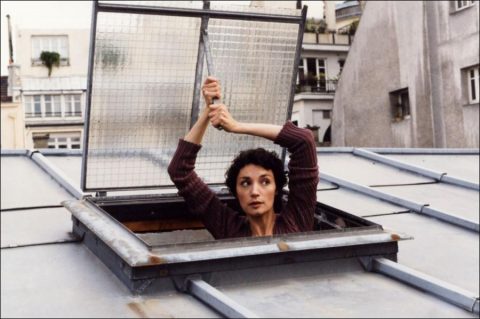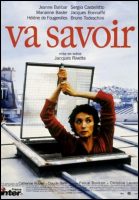Jacques Rivette, in another production, Va savoir (2001), turns the film into an artistic play from the beginning with his story on the theater stage. In this game, the secrets of six people that are intertwined between past and present are told. These six people, consisting of directors, theater actors, thinkers and intellectuals, bring art performers to the stage with their professions and fields of work and put some kind of art on the table in their own context.
Camille (Jeanne Bilbar) is a famous theater actor. Together with an Italian company, he goes to Paris to play in a game directed by his lover Ugo (Sergio Castellitto). At this time, however, he meets his ex-girlfriend Pierre, and his feelings about his past flare up again. On the other hand, when Ugo goes to the archive to investigate a work by Goldoni, the attractive student who has helped her in the archive gradually becomes interested in Do.
It should be noted that all relationships and emotions change throughout the movie; Old ties are broken and new pieces come together to form a new relationship network. The fiction that follows the unity-distribution-unity order that forms the classical romance frame is a reflection of the postmodern understanding in form, while also winking into the classic in terms of content.
As can be seen, the New Wave movement that develops outside of a formal framework and rules in cinema reveals the principle of Rivette’s works, rather the way he draws himself. Thus, we open the doors of the New Wave together with Rivette. Now it’s time to focus on art and follow the art in his own work! Anything new, a repetition of the old? Rivette shows with her own originality that this is not the case.
Storyline
The theatre world is a familiar setting for the films of Rivette. In Va savoir, the characters, all quick-witted, well-read and cultured types, revolve around each other in a delightful potpourri of theatre, romance and theft. In the end, everything lands on its feet and they all get the partner they deserve, but before then, long filmer Rivette takes two and a half hours to dwell lightly on the vicissitudes around the six protagonists.
Camille is an actress with an Italian company that is in Paris to perform a play by Pirandello, Come tu mi vuoi. Her boyfriend Ugo is the director and the company’s most important actor. Both have a hidden agenda for their trip to Paris: Camille meets her ex Pierre, a professor of philosophy, while Ugo is secretly researching a supposedly lost play by Goldoni. In the archives, he is assisted by the charming student Do, who steals his heart.
In turn, Do has a link with Pierre: her stepbrother, the playwright Arthur, namely steals an expensive ring from Pierre’s wife Sonia. After many sophisticated conversations, secret rendezvous and references to Pirandello, events reach a hilarious climax when Pierre and Ugo challenge each other to an old-fashioned duel for life and death.
Directed by: Jacques Rivette
Starring: Jeanne Balibar, Sergio Castellitto, Marianne Basler, Hélène de Fougerolles, Catherine Rouvel, Jacques Bonnaffé, Bruno Todeschini, Claude Berri, Valéria Cavalli
Screenplay by: Pascal Bonitzer, Christine Laurent
Production Design by: Emmanuel de Chauvigny
Cinematography by: William Lubtchansky
Film Editing by: Nicole Lubtchansky
Costume Design by: Laurence Struz
Makeup Department: Laurence Boulet, Michèle Constantinides, Jane Milon
MPAA Rating: None.
Distributed by: Les Films du Losange (France)
Release Date: October 10, 2001
Views: 131




